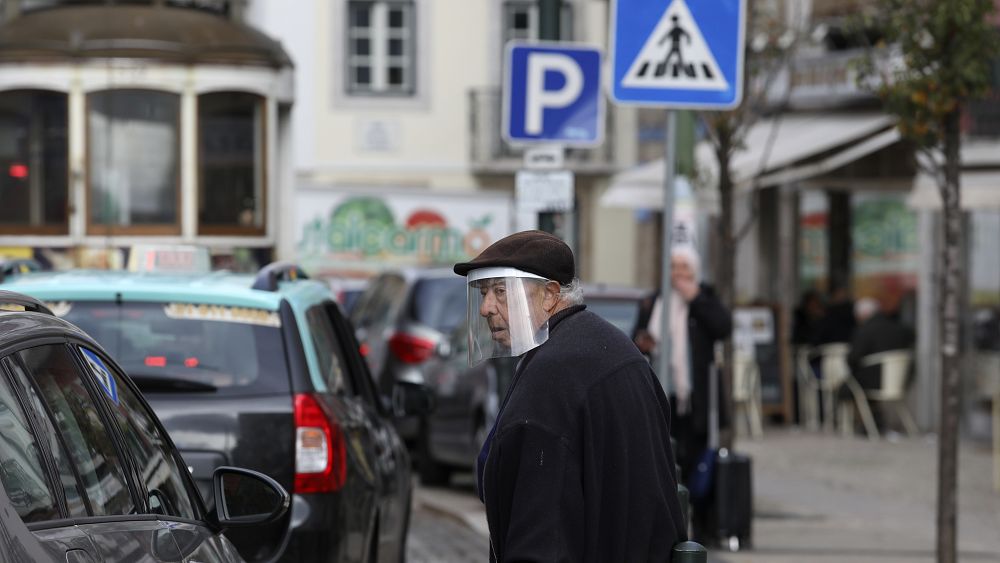Portugal has decided to activate the so-called “emergency brakes” enshrined in the regulation that created the European Union (EU) Covid-19 digital certificate and will require a negative PCR or antigen test for those who wish to enter the country by air, land or via The origin or nationality of the passenger.
The measure, which takes effect from 00.00 hours on December 1, appears less than six months after the digital document went into effect.
It has worsened the Covid-19 pandemic in Europe and the rapid spread of the new type of disease, known as Omicron.
Prime Minister Antonio Costa has declared a “state of disaster” that will come into effect tomorrow and last until 23.50 on March 20, 2022.
Costa also announced strict measures to stem the spread of the epidemic. Among them is a recommendation to work remotely – in the first week of January it will be mandatory – or the mandatory use of masks in all indoor spaces and stadiums, for example.
Entry to homes, health institutions, large events and clubs is only allowed with a negative test and digital certification is again mandatory in restaurants, tourism establishments, local accommodations, gyms and venues.
During the first week of January there will be reinforcement of procedures.
The Portuguese government’s decision surprised Brussels.
The European Union’s Covid-19 digital certificate has been launched to facilitate border crossings and exempt document holders from additional restrictions, such as the need to quarantine upon arrival at a particular destination.
Assignment is the main advantage of the certificate and the reason for its issuance in record time, in the early summer.
At the same time, the certification regulation gives EU countries the possibility to activate “emergency brakes” that can be used when the epidemiological situation in another member state rapidly deteriorates.
The “brake” allows the government to introduce testing and quarantine requirements, as long as the measures are exceptional, proportionate, temporary and, if possible, only applicable at the regional level.
Portugal has invoked the strength of EU law to resort to an extreme version of “emergency brakes” that will subject permit holders from the 27 member states to a test of conditions.
A radical recourse to the proprietary mechanism was not expected when the block released the digital certificate, and that could be bad news for its long-term viability.
Yesterday, European Commission spokesperson Christian Wigang stressed that “in principle, Member States should refrain from imposing additional travel restrictions on holders of EU Covid-19 digital certificates, in particular holders of vaccination and recovery certificates”.
“They must inform the Commission and other member states 48 hours in advance if they intend to impose new restrictions.”
The same spokesperson later confirmed to Euronews that Portugal notified the executive community of the plans on Monday morning and that the request was still being analyzed to determine its legality.
Will other countries in Europe follow the same steps?
Antonio Costa’s socialist government has been among those actively defending the degree, which is essential to boosting a tourism-dependent economy after a dramatic recession in 2020.
The European Commission says the scheme has been a success: this year, more than 650 million certificates have been issued and a total of 51 regions, such as the UK, Norway and Singapore, are connected to the system.
While EU certification can also be obtained with a recent negative test and a medical statement of recovery, the document was primarily associated with proof of vaccination, giving vaccinated travelers the privilege of moving freely.
The choice of Portugal is particularly notable: the country is one of the most vaccinated in the world, with more than 88% of its population fully vaccinated against Covid-19.
The decision was announced a day before Omicron’s release began in international headlines and sparked panic among investors.
For now, it is not known that other member states have informed Brussels that they will follow in Portugal’s footsteps, the commission spokesperson said.
Switzerland, a non-EU country linked to the certification system, has quarantined arrivals from countries where the new variant has been detected, including the Czech Republic, the Netherlands and the United Kingdom.

“Writer. Analyst. Avid travel maven. Devoted twitter guru. Unapologetic pop culture expert. General zombie enthusiast.”

